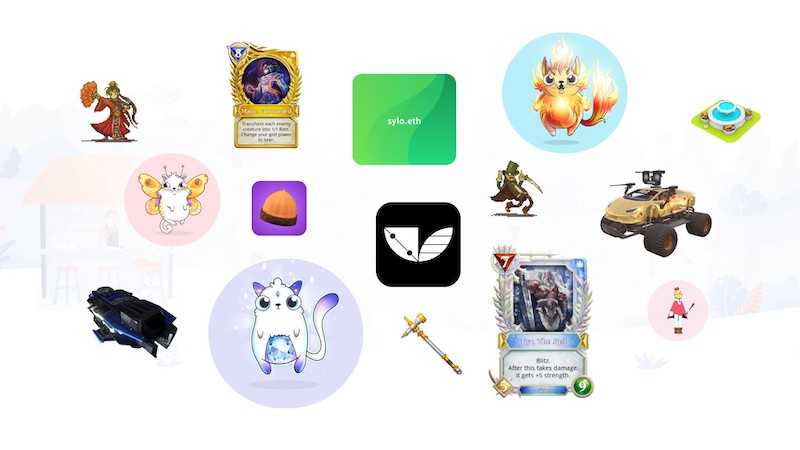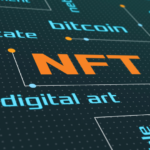As we creep closer to the Metaverse, a shared persistent digital environment of interconnected experiences, we hear news of more industry players getting involved (such as Epic Games and Roblox). All of this is meaningless until netizens have ownership rights over their digital assets. Gaming is at the core of it all.

Playing video games makes us think that anything is possible. We can transcend reality in these virtual worlds with their limitless potential as we become heroes. The sense of control they give us makes us feel like we own our own fate.
Gamers and games
Simulations of life can be found in games: Players earn rewards to accumulate worth, advance and rise in ranks. Gaming is a hobby in which gamers place extraordinary value on these goals, and every week they play around 30 hours of video games, interact on gaming forums, and watch game streams. A good deal of money is also spent on in-app purchases like weapons and armor, for a variety of reasons, including upgrading their gameplay or just looking good. Even paying for faster progress can help them reach higher levels more quickly.

In these games, it might be misleading to say that you have achieved “success”. The human species spends significant time in simulated environments, sacrificing our economic substance and potential in the process. There is nothing like a traditional video game to relax, restrain, and control your world: the walled gardens are built specifically for the players to play within, only in those walls. It is an illusion that players feel any sense of ownership or freedom when in actuality, the platform and game publisher control your gameplay and metaverse experiences.
The global gaming industry is valued at more than $170 billion and growing, which is more than the music and movie industries combined. The profits of game publishers that feel they must restrict games for their own protection are at stake.
Real life vs. games: A conflict
China’s courts are currently involved with one such case. DD373.com’s site allows Dungeon Fighter Online players to exchange virtual coins and other in-game items with Tencent, the largest video game publisher in the world. Tencent is seeking damages of $6.2 million from DD373.com.
During the lawsuit, Tencent emphasized that any items acquired by players would have no real-world value and would continue to be Tencent’s property. Tencent says that the virtual coin, which players buy to gain access to other items in the game, is also “service charge.” Since players never actually owned those assets, they may not trade them outside of the platform.
An isolated instance of this problem does not exist. A similar approach is followed by virtually every game publisher.
Most traditional games currently only allow players to engage in a limited set of economic activities. A variety of in-game currencies are available to players, including coins, credits, gold, and gems. Players must use in-game trading systems to conduct transactions. In this sense, in-game assets are only valuable in their native game.
This means that games and assets are rented rather than owned, since they are provided on a licensing basis. The rental agreement is tenuous at best: Players can spend years building assets and tens of thousands of dollars on the game, but all that can be taken away in an instant.

Gaming is a place where this happens often. Dead games are tracked on Delisted Games. China’s exclusive version of Call of Duty, which took in-game payments until the end of June, is one current example of a game facing an untimely death.
In the case of Ubisoft’s sudden shutdown of servers that blocked Might & Magic X: Legacy players from receiving their gainfully purchased content since the beginning of June, an unintended consequence was the players left high and dry.
There can be catastrophic failures, including fires or floods at key data centers, which erase progress, accounts, or even entire worlds. A server fire literally consumed days of progress for players of the survival game Rust in March. In a game where you may or may not be able to log in, this is still a serious issue, regardless of the extent of the incident.
Furthermore, a shift in regulations can also prevent players from playing their favorite games. As a result of licensing restrictions, a European player who relocates to Hong Kong will no longer have access to Star Trek Online. In the age of borderless and inclusive online games, it seems ridiculous to restrict access to and participation in online games based on geography.
A very protective and restrictive approach characterizes the gaming industry.
In games, there are rights to digital content
A number of factors indicate that there is no equitable digital property right for games. Due to the increasing popularity of blockchain games, players will soon be able to demand their property rights, something that wasn’t thought possible until recently.
Games already offer a means to protect intellectual property: nonfungible tokens (NFTs). These indivisible tokens are enabled by blockchains and grant their owners property rights, regardless of the platform. Game platforms, publishers, mobile app stores, or other exclusive hosts could serve as the starting point for virtual goods but gaming is probably the smartest choice, since 2.7 billion gamers are already familiar with virtual goods.

An open permissionless protocol, backed by community consensus, ensures digital ownership rights on a blockchain. A method of trading NFT games assets that is unthinkable in traditional games is made possible by this technology.
Game publishers fear this new dynamic will negatively impact their profits. While this is great for gamers, it is not so good for traditional publishers.
It is the NFTs that will change the game
Animoca Brands’ blockchain game F1 Delta Time by Animoca Brands is an example of a tokenized game. In that game, players can own any piece of content that exists. Cars, tires, and even drivers can be traded on a third-party market or used in-game, according to the owners’ wishes. Many players of F1 Delta Time report earning thousands of dollars a month because of this.
NFTs let players access digital assets across a variety of platforms, which means that content itself becomes the platform, meaning NFTs can also provide interoperability. One day, you will be able to own multiple sets of chess pieces that can be used on multiple boards and access different virtual worlds, just as you can own many sets of chess pieces that can be used on different boards. There is a metaverse on the horizon.

The more that digital property rights are granted to gamers with tokenized content, the brighter the outlook for the gaming industry looks.
Decentralizing and equitizing the global internet is becoming more the norm in the world today. The blockchain technology drives this in a transparent, immutable, and sustainable manner and is propelled by incentive models designed to reward the communities that contribute to building and maintaining it. As a result of the new digital economy, flows of power and money will be rebalanced, intermediaries will be reduced, and old restrictions will finally be lifted.




